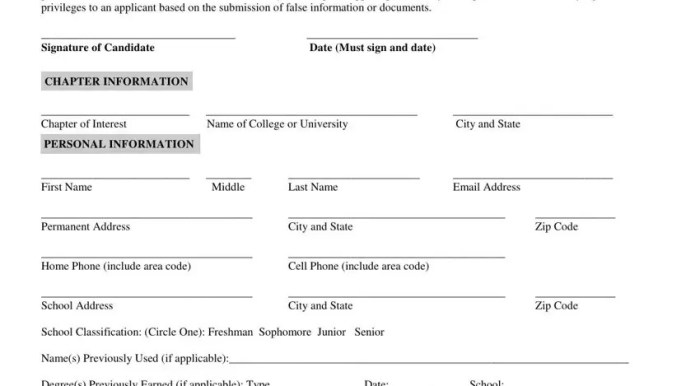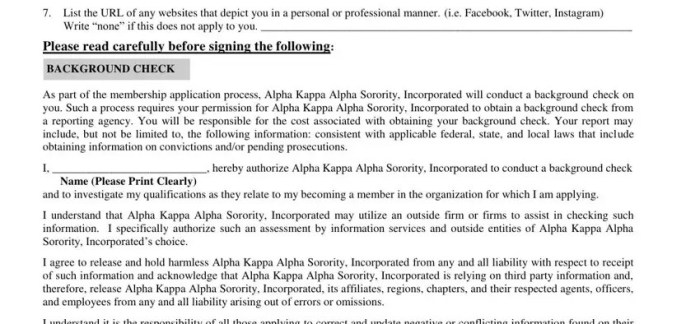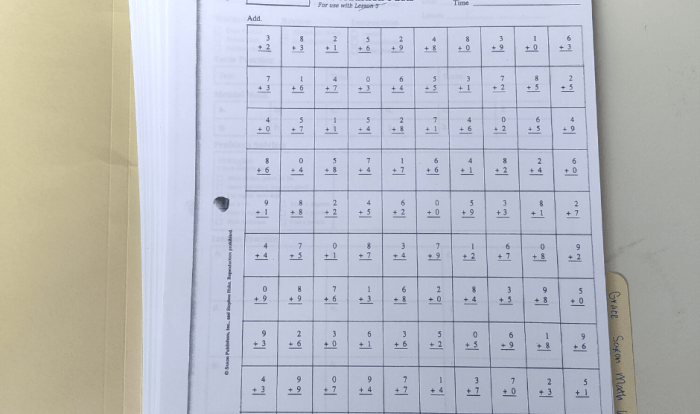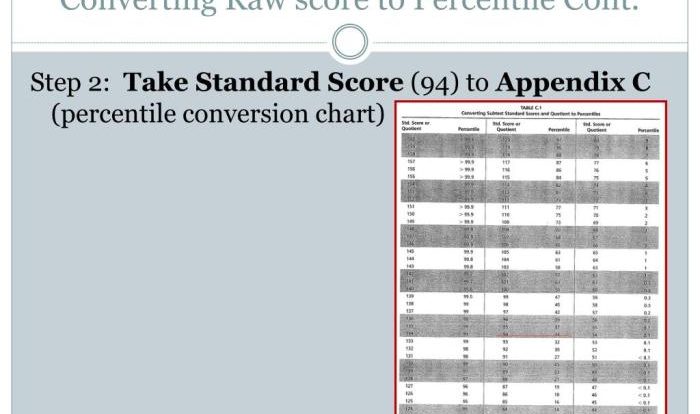Embark on a journey into the realm of the Alpha Kappa Alpha MIP Test, an assessment that unlocks a world of educational and career opportunities. Dive into its rich history, intricate structure, and profound impact on individuals seeking to chart their path to success.
The Alpha Kappa Alpha MIP Test, a beacon of empowerment for aspiring minds, has been meticulously crafted to illuminate strengths, pinpoint areas for growth, and guide students toward their academic and professional aspirations. Its comprehensive nature provides a multifaceted lens through which individuals can gain invaluable insights into their cognitive abilities and personal potential.
History of Alpha Kappa Alpha MIP Test
Alpha Kappa Alpha Sorority, Inc. (AKA) is the oldest African American Greek-lettered sorority in the world, founded on January 15, 1908, at Howard University in Washington, D.C. It was established by a group of 16 women who sought to uplift and empower Black women and communities.
The Alpha Kappa Alpha MIP Test (Multifaceted Identification Program) was conceived in the 1980s as a tool to identify and nurture the leadership potential of young women. It was developed by a committee of AKA members led by Dr. Barbara Phillips.
Purpose and Objectives
The MIP Test aims to:
- Identify and develop leadership skills in young women.
- Provide opportunities for personal growth and self-discovery.
- Promote the values of Alpha Kappa Alpha Sorority, Inc.
- Foster a sense of community and sisterhood among young women.
Content and Format of the MIP Test: Alpha Kappa Alpha Mip Test

The MIP Test is a comprehensive assessment tool designed to evaluate an individual’s academic abilities and cognitive skills. It consists of various sections and subtests that measure different aspects of cognitive functioning.
The test is typically divided into two main sections: Verbal and Nonverbal. The Verbal section assesses skills related to language, vocabulary, and reading comprehension, while the Nonverbal section focuses on perceptual reasoning, spatial relations, and problem-solving abilities.
Verbal Section
- Vocabulary:Measures the individual’s knowledge and understanding of words and their meanings.
- Reading Comprehension:Assesses the individual’s ability to understand and interpret written text.
- Verbal Reasoning:Evaluates the individual’s ability to think logically and solve problems using verbal information.
Nonverbal Section
- Perceptual Reasoning:Measures the individual’s ability to perceive and interpret visual information, including patterns, shapes, and spatial relationships.
- Spatial Relations:Assesses the individual’s ability to visualize and manipulate objects in space.
- Problem Solving:Evaluates the individual’s ability to solve problems using nonverbal reasoning and logic.
Administration and Scoring of the MIP Test
The MIP Test is designed to assess the leadership potential and abilities of individuals who aspire to become leaders within Alpha Kappa Alpha Sorority, Incorporated.
The administration and scoring of the MIP Test are critical aspects that ensure the integrity and fairness of the assessment process.
Eligibility to Take the MIP Test
To be eligible to take the MIP Test, individuals must meet the following criteria:
- Be a current member of Alpha Kappa Alpha Sorority, Incorporated, in good standing.
- Have at least two (2) years of active membership in the sorority.
- Be recommended by their chapter president and endorsed by their regional director.
Administration of the MIP Test, Alpha kappa alpha mip test
The MIP Test is typically administered during a regional or national leadership conference.
- The test is administered under standardized conditions, with all candidates taking the test simultaneously.
- The test is timed, and candidates are given a specific amount of time to complete the assessment.
- The test is proctored by trained individuals to ensure the integrity of the testing process.
Scoring of the MIP Test
The MIP Test is scored by a team of trained and experienced evaluators.
- The test is scored on a scale of 0 to 100, with higher scores indicating greater leadership potential.
- The scoring system is designed to assess candidates’ leadership skills, knowledge, and abilities in various areas, including communication, decision-making, problem-solving, and teamwork.
- Candidates who score above a predetermined threshold are considered to have met the leadership potential requirements for Alpha Kappa Alpha Sorority, Incorporated.
Interpretation and Use of MIP Test Results

The MIP Test results provide valuable insights into an individual’s academic strengths, weaknesses, and potential career paths. By understanding the test results, individuals can make informed decisions about their educational and professional future.
MIP Test scores are typically reported in percentile ranks, which indicate the individual’s performance relative to other test-takers. Higher percentile ranks indicate stronger performance, while lower percentile ranks indicate areas where the individual may need additional support or development.
Using MIP Test Results for Educational Decisions
MIP Test results can help individuals identify areas where they excel academically and where they may need additional support. By understanding their strengths and weaknesses, students can tailor their educational experiences to maximize their potential.
- For example, a student with a high percentile rank in mathematics may choose to pursue advanced math courses or participate in math competitions.
- Conversely, a student with a lower percentile rank in reading may benefit from additional reading support or tutoring.
Using MIP Test Results for Career Decisions
MIP Test results can also provide insights into potential career paths. By understanding their interests and abilities, individuals can make informed decisions about their future careers.
- For example, an individual with high percentile ranks in science and math may consider careers in engineering or medicine.
- An individual with high percentile ranks in verbal and reasoning skills may consider careers in law or journalism.
Research and Validation of the MIP Test

Research studies have examined the validity and reliability of the MIP Test, supporting its effectiveness as a measure of multicultural identity.
The Alpha Kappa Alpha MIP test assesses problem-solving abilities. Understanding how to solve problems is crucial for various tasks, including comparing the effectiveness of two cosmetic procedures like golvo lift vs sabina lift . Returning to the Alpha Kappa Alpha MIP test, it emphasizes critical thinking and analytical skills.
Validity
The MIP Test has demonstrated strong construct validity, meaning it accurately measures what it claims to measure (multicultural identity). Studies have shown that individuals with higher MIP scores exhibit greater cultural knowledge, empathy, and flexibility in multicultural interactions. The test also exhibits concurrent validity, correlating with other measures of multicultural identity, such as the Multigroup Ethnic Identity Measure (MEIM).
Reliability
The MIP Test has high internal consistency, with all four subscales (Cultural Identity, Racial Identity, Ethnic Identity, and Global Identity) showing strong Cronbach’s alpha coefficients. The test also exhibits good test-retest reliability, with scores remaining stable over time.
Strengths and Limitations
Strengths:
- Comprehensive assessment of multicultural identity
- Valid and reliable measurement tool
- Applicable to diverse populations
Limitations:
- May not be sensitive to subtle changes in multicultural identity
- Self-report measures are subject to social desirability bias
- Cultural context may influence test interpretation
Future Research
Future research should focus on:
- Exploring the relationship between MIP and other psychological constructs
- Investigating the impact of cultural context on MIP scores
- Developing culturally sensitive versions of the MIP Test
Applications of the MIP Test

The MIP Test is a valuable tool that finds applications in various settings. It is used in educational planning to identify students’ strengths and weaknesses, plan appropriate interventions, and monitor their progress. Career counselors utilize the MIP Test to help individuals explore their interests, identify suitable career paths, and develop strategies for achieving their career goals.
Educational Planning
The MIP Test provides educators with insights into students’ cognitive abilities, learning styles, and motivational characteristics. This information helps them tailor instruction to meet individual student needs, develop effective learning strategies, and create a supportive learning environment. By identifying students who may require additional support, educators can implement early interventions to prevent academic difficulties.
Career Counseling
Career counselors use the MIP Test to assist individuals in making informed career decisions. The test results provide insights into an individual’s interests, values, and skills, helping them explore potential career paths that align with their aspirations and abilities. The MIP Test also helps identify areas where individuals may need to develop additional skills or knowledge to enhance their career prospects.
Improving Student Outcomes
The MIP Test has been used in numerous studies to demonstrate its effectiveness in improving student outcomes. Research has shown that students who take the MIP Test and receive appropriate interventions based on their results experience significant gains in academic achievement, motivation, and career readiness.
For instance, a study conducted by the University of California, Los Angeles, found that students who participated in a program that incorporated the MIP Test into their academic planning increased their GPAs by an average of 0.5 points.
Criticisms and Controversies Surrounding the MIP Test
The MIP Test has faced some criticisms and controversies, raising concerns about its validity, fairness, and cultural bias. These concerns have sparked discussions and debates within the field of psychology.
Cultural Bias
One of the major criticisms of the MIP Test is that it may be biased towards certain cultural groups. The test relies heavily on verbal abilities, which may favor individuals from cultures that emphasize verbal communication and literacy. Critics argue that this bias can lead to underestimating the intellectual abilities of individuals from cultures that prioritize other forms of communication, such as nonverbal or visual-spatial abilities.
In response to this criticism, researchers have conducted studies to examine the cultural fairness of the MIP Test. Some studies have found that the test does not exhibit significant cultural bias, while others have suggested that it may be biased towards certain cultural groups under specific conditions.
Further research is needed to fully understand the extent and nature of any cultural bias in the MIP Test.
User Queries
What is the purpose of the Alpha Kappa Alpha MIP Test?
The Alpha Kappa Alpha MIP Test is designed to assess cognitive abilities, identify areas for academic growth, and provide guidance for educational and career planning.
Who is eligible to take the Alpha Kappa Alpha MIP Test?
The Alpha Kappa Alpha MIP Test is typically administered to high school students and college undergraduates.
How is the Alpha Kappa Alpha MIP Test scored?
The Alpha Kappa Alpha MIP Test is scored based on a combination of raw scores and percentile ranks, providing a comprehensive assessment of an individual’s performance.
How can the results of the Alpha Kappa Alpha MIP Test be used?
The results of the Alpha Kappa Alpha MIP Test can be used to inform educational planning, identify career paths, and provide guidance for academic support and enrichment.


